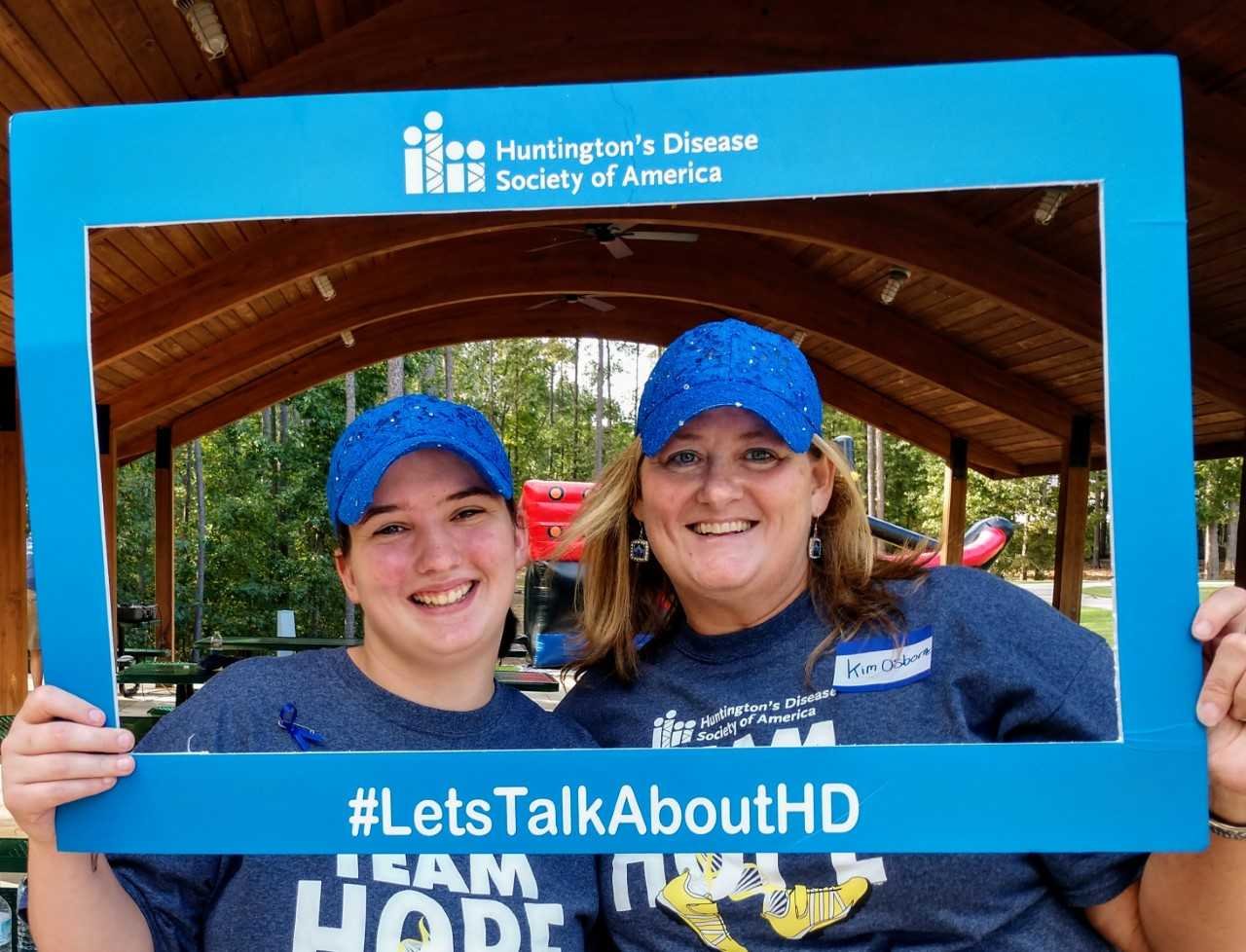Pinewood woman fights for awareness, cure for Huntington's Disease
Co-chairwoman of the South Carolina Affiliate of the Huntington's Disease Society, Kim Austin Osborne, poses with her daughter, Courtney Austin, at a Huntington's Disease fundraiser. Osborne is passionate about finding a cure for the disease after her ex-husband passed away in May 2017 because of it.
Although there is no cure for Huntington's Disease, there is still hope for those who have it, and no one believes that more than Pinewood's Kim Austin Osborne, co-chairwoman of the South Carolina Affiliate of the Huntington's Disease Society of America.
South Carolina just recently received its affiliate status, which Osborne was more than happy about.
"We received our affiliate status in November, and we've been working toward that since 2014," she said.
Osborne has helped organize annual events to raise money to help people with HD, such as the Team Hope Walk in Irmo in October, a "Strikeout HD" bowling event in Columbia in May and the "Sweet Ride for a Cure Poker Run and Cake Walk" in September.
The SC HD Affiliate also has peer support groups that meet in Charleston. Charleston also has a Team Hope Walk, and Osborne is hoping Greenville will have one soon.
Osborne is also a board member on the Center of Excellence.
"It's a team of specialists (who help HD patients with) physical therapy and speech therapy," she said. "The (SC) Affiliate works hand in hand to fund raise and to build the Center of Excellence up. (The more we fund raise), the higher their budget gets."
Osborne was personally affected by HD when her ex-husband passed away because of the disease in May of 2017.
"It strikes me to work harder to find a cure," she said. "The onset was from when he was 25, and he was 49 when he passed away."
Osborne knows just how painful HD can be for everyone involved.
"It's a rare disease, and there's not much out there to help," she said. "It's a family disease, so there's a 50-50 chance your child could get the disease as well. It's long; you watch people suffer, and you can't do anything about it."
HD can affect a person emotionally and/or physically. On the emotional side, it can lead to anger and impulses, whereas on the physical end, people can start to make rigid movements.
"It looks like they're drunk," Osborne said. "When both the emotional and physical (symptoms) combine, (it results in) hardship for whoever is the caretaker."
HD can also cause swallowing issues, which may result in patients having to use a feeding tube and can cause aspiration, potentially leading to aspiration pneumonia.
"There's no cure," Osborne said. "They have treatments for motor issues that sedate the patient, but they don't add to any quality of life."
They also don't test for HD until age 18 for a very specific reason.
"A lot of times, because there's no cure, it's detrimental (to mental health)," Osborne said. "There's not a lot of hope, and a lot of people become suicidal. They want to make sure they're able to handle a diagnosis like that; they have counseling ahead of time."
For more information on how to help patients with HD or to learn how to participate in HD fundraisers, contact Osborne at (803) 983-2052, (803) 452-NOHD (6643) or curehdinsc@gmail.com or visit http://hdsa.org/about-hdsa/support-groups/.
More Articles to Read

